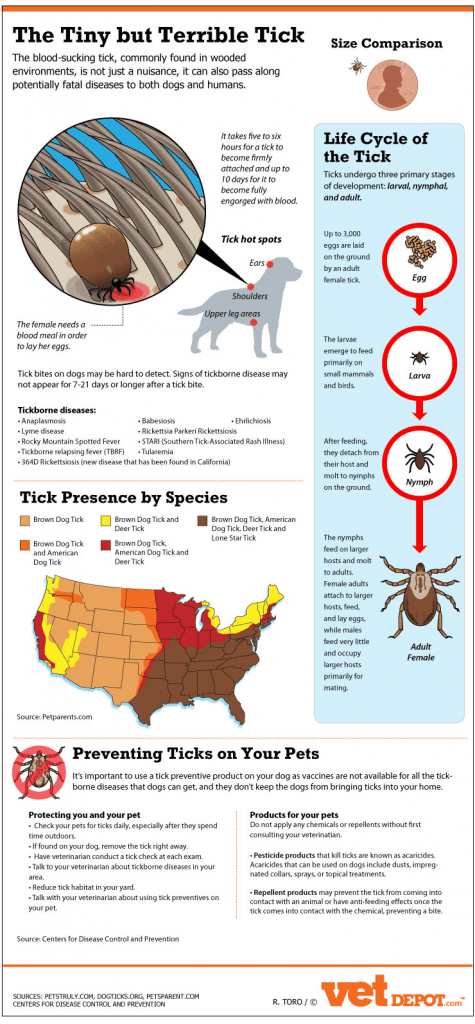-
View Larger Image

Summer has ended and we’re in the full fall swing. And while some animals prepare to head into hibernation this time of year, unfortunately many parasites do not. As much as we’d like to think we can enjoy winter without bugs, these hardy critters require our pets to have year ‘round protection.
Fleas and ticks can easily survive winter as long as they find a warm host like a wild animal or your pet. Flea eggs can lay dormant for up to a year just waiting for the right temperature to come out. For this reason, if your pet spends time outdoors in the winter, prevention is still important.
Most areas of the country do enjoy a seasonal respite from mosquitoes, however warmer regions still suffer their blood-sucking (and itching) schemes — even in the winter. Mosquitoes, of course, are carriers of the heartworm parasite, which can cause a life threatening disease and even death. Even in areas where residents do not have to worry about mosquitoes during the winter, their return in the spring and summer months can catch you off guard. It is best to be pre-prepared.

The final word on avoiding parasitic infestations of any kind is to use preventive techniques. Remember that while fleas, ticks and mosquitoes may seem to be merely nuisance pests, they are actually capable of causing severe health problems, from the above mentioned heartworm infection, to skin disorders and infections, to anemia. Talk to your veterinarian today about the best preventive for your pets.

